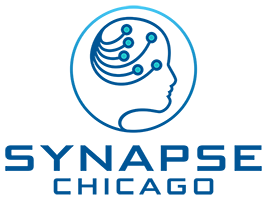an effective treatment plan for OCD
How does OCD affect me?
OCD is not just about being extremely neat or organized. People with this condition suffer from recurring unwanted thoughts or impulses (obsessions), as well as repetitive rituals (compulsions) such as excessive cleaning, praying, and checking. Patients are usually aware that their thoughts and actions are excessive and irrational, yet they can’t do anything to resist or fight them.
These obsessions and compulsions can affect every aspect of one’s life, from personal relationships to school and work performance. You may have difficulty in concentration and time management, and even miss out on activities because of these compulsions.

Live a happy, healthy, and productive life
OCD is an often misunderstood condition. Many who are suffering are reluctant to seek treatment because of the stigma surrounding it or the assumption that it is untreatable. The reality of OCD is that is a mental disorder that affects all age groups from young children to adults. Globally, it is one of the top 20 causes of illness-related disabilities. Medications are often used to treat OCD, but once medication is stopped, the obsessions and rituals return. But there is hope without the reliance of pharmaceuticals.
How is OCD treated
Conventional OCD treatment relies on high doses of medications and exposure therapy. While these are helpful, they don’t work for everyone. A study published in the Biological Psychiatry Journal revealed that there is disrupted connectivity between neural pathways that connect regions of the brain responsible for flexible thinking and goal-directed planning in people with OCD. We know that these skills are impaired in OCD patients and most likely contribute to the difficulty of fighting the drive to perform purposeless compulsions.
The Science
At Synapse Chicago, we offer an individualized treatment plan using Neurofeedback and/or Psychotherapy to help you break free from your obsessive thinking so that you can live your best life.
The Physiology
Dysregulation in the communication between the cells of the brain can generate unwanted thoughts and emotions. A brain map, or QEEG, can identify these problem areas so that treatment is specific to your symptoms. Neurofeedback is utilized to reinforce the areas of the brain associated with control and emotional reactivity. Over time, the brain learns to self-regulate and appropriately react to stimuli, resulting in reduced obsessions and compulsions. This allows your brain to be more flexible and not “stuck” in compulsive thinking.
The Psychology
Psychotherapy, Cognitive Behavioral Therapy (CBT), and Dialectical Behavioral Therapy (DBT) provide individuals with tools to help reduce intrusive thinking while gaining power over the rituals that control their lives. These techniques also help people cope with anxiety and depression, which often accompany an OCD diagnosis. Psychoeducation can help one gain insight into the root of the disorder and dispel any misconceptions or feelings of helplessness. In addition, coping techniques such as relaxation exercises and mindfulness can help prevent or reduce ritualistic thinking.
Synapse Chicago is here for you
break free from compulsive thinking
